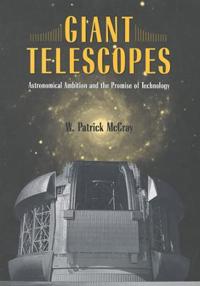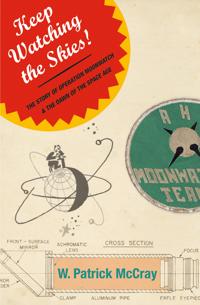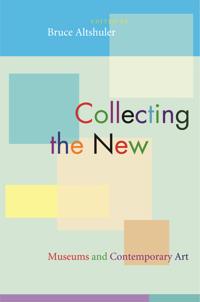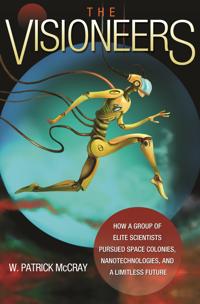Technology and Society: Building Our Sociotechnical Future (Övrig)
avGeorge Ritzer, Richard Dyer, Rachel Weber, Daniel Sarewitz, Jameson M. Wetmore, W. Patrick Mccray, , Harold Collins
ISBN: 9780262101240 - UTGIVEN: 2008-11-25Technological change does not happen in a vacuum; decisions about which technologies to develop, fund, market, and use engage ideas about values as well as calculations of costs and benefits. This anthology focuses on the interconnections of technology, society, and values. It offers writings by aut[...]
Giant Telescopes (Häftad)
avW. Patrick McCray
ISBN: 9780674019966 - UTGIVEN: 200605Every night, astronomers use a new generation of giant telescopes at observatories around the world to study phenomena at the forefront of science. By focusing on the history of the Gemini Observatory - twin 8-metre telescopes located on mountain peaks in Hawaii and Chile - "Giant Telescopes" tells [...]
Keep Watching the Skies! (Inbunden)
avW. Patrick McCray
ISBN: 9780691128542 - UTGIVEN: 200804When the Soviets launched Sputnik in 1957, thousands of ordinary people across the globe seized the opportunity to participate in the start of the Space Age. Known as the "Moonwatchers," these largely forgotten citizen-scientists helped professional astronomers by providing critical and otherwise un[...]
Collecting the New (Häftad)
avW. Patrick McCray
ISBN: 9780691133737 - UTGIVEN: 200707Collecting the New is the first book on the questions and challenges that museums face in acquiring and preserving contemporary art. Because such art has not yet withstood the test of time, it defies the traditional understanding of the art museum as an institution that collects and displays works o[...]
The Visioneers (Inbunden)
avW. Patrick McCray
ISBN: 9780691139838 - UTGIVEN: 201212In 1969, Princeton physicist Gerard O'Neill began looking outward to space colonies as the new frontier for humanity's expansion. A decade later, Eric Drexler, an MIT-trained engineer, turned his attention to the molecular world as the place where society's future needs could be met using self-repli[...]








